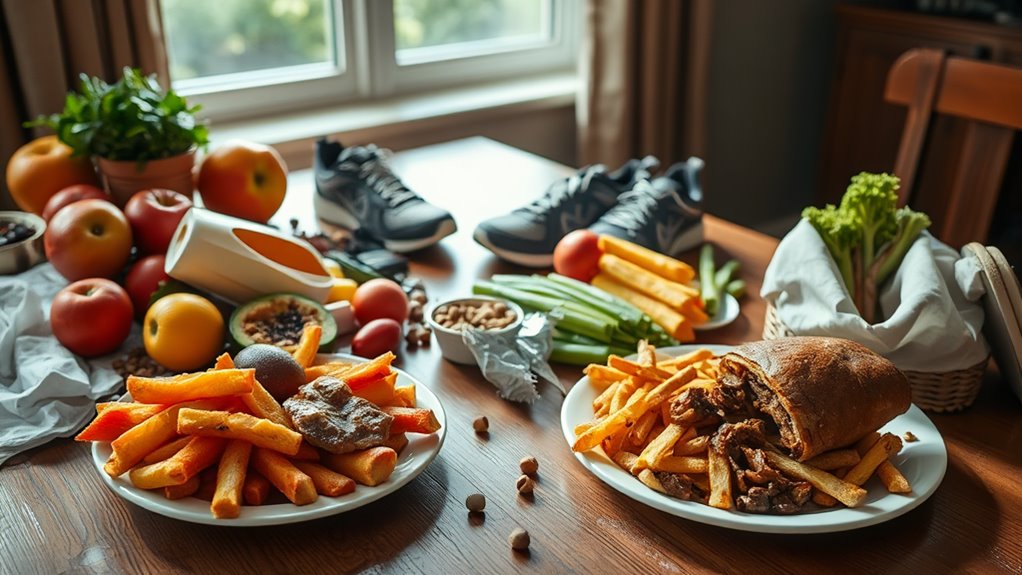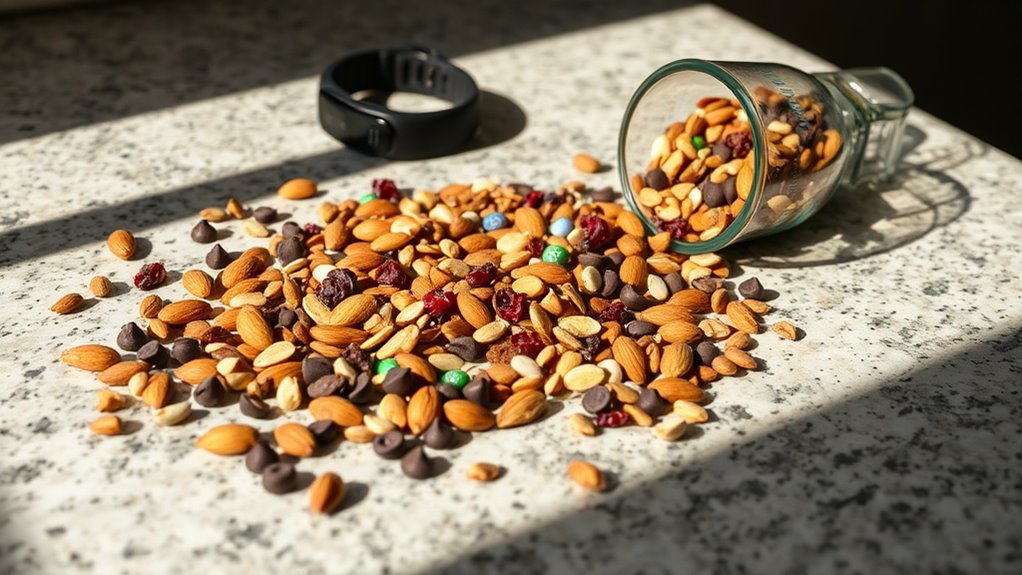Why Your Diet Isn’t Working (And What to Do Instead!)
Your diet isn’t working because psychological barriers, like self-sabotage and social pressures, can undermine your commitment. Nutritional misconceptions, such as demonizing carbs or skipping meals, further complicate your efforts. Plus, unrealistic goals set you up for failure. Understanding your metabolism’s role in weight loss is crucial too. To succeed, focus on realistic, achievable goals and adopt sustainable habits. There are effective strategies that can make a real difference, and there’s much more to explore.
Understanding the Psychological Barriers to Dieting
When you embark on a diet, you mightn’t realize that psychological barriers can significantly influence your success. Your mindset plays a crucial role; if you believe you’ll fail, you’re more likely to give in to temptation.
Self-sabotage often stems from fear of change or past failures. Recognizing these thoughts is vital. You may also face social pressures that challenge your resolve, leading to guilt or anxiety.
To overcome these obstacles, cultivate a growth mindset. Focus on progress, not perfection, and celebrate small victories. Surrounding yourself with supportive individuals can bolster your motivation.
Common Nutritional Misconceptions
Many people struggle with their diets not just due to psychological barriers but also because of widespread nutritional misconceptions.
To truly master your nutrition, it’s crucial to dispel these myths:
-
Carbs are the enemy: Not all carbs are bad; whole grains and fruits are essential for your body.
-
Fat makes you fat: Healthy fats, like those from avocados and nuts, are vital for optimal health.
-
Skipping meals aids weight loss: This often leads to overeating later; regular meals keep your metabolism steady.
-
Detox diets are effective: Your body naturally detoxifies; extreme diets can harm more than help.
The Role of Metabolism in Weight Loss
Understanding how metabolism works is key to achieving your weight loss goals. Your metabolism is the engine that converts food into energy, and its efficiency can significantly impact your weight.
Factors like age, muscle mass, and hormonal balance influence your metabolic rate. If you’ve been dieting without results, it might be time to assess your metabolic health.
Engaging in strength training can enhance muscle mass, which boosts metabolism, while high-intensity interval training (HIIT) can further increase calorie burn.
Additionally, prioritizing whole foods over processed options provides the nutrients your body needs to optimize metabolic function.
The Importance of Realistic Goal Setting
Setting realistic goals is crucial for maintaining motivation and achieving lasting weight loss. When you set achievable targets, you’re more likely to stay committed.
Here are four key principles to guide your goal-setting process:
-
Specificity: Define clear, measurable objectives, like losing 1-2 pounds per week.
-
Achievability: Ensure your goals are attainable, considering your current lifestyle and commitments.
-
Relevance: Align your goals with your personal values and long-term vision for health.
-
Time-bound: Set deadlines for your goals to create a sense of urgency and accountability.
Strategies for Sustainable Lifestyle Changes
While you may feel tempted to dive into drastic changes for quick results, sustainable lifestyle changes require a more thoughtful approach.
Start by identifying specific, achievable habits you can integrate into your daily routine. Focus on incorporating whole foods gradually instead of overhauling your entire diet overnight. Track your progress to celebrate small victories, reinforcing your commitment.
Additionally, prioritize movement you enjoy—this way, exercise becomes a rewarding part of your day rather than a chore. Surround yourself with supportive individuals who share your goals; their encouragement can be invaluable.
Lastly, be patient with yourself. Mastery takes time, and consistency will yield the most significant results. Embrace the journey, and remember that lasting change comes from small, manageable steps.
Frequently Asked Questions
How Do I Handle Cravings During a Diet?
You tackle cravings by staying mindful and planning ahead. Keep healthy snacks nearby, stay hydrated, and practice portion control. Recognize triggers, and when cravings hit, distract yourself with an activity or a quick walk outside.
Can I Lose Weight Without Exercising?
Yes, you can lose weight without exercising by focusing on your diet. Prioritize whole foods, control portion sizes, and maintain a calorie deficit. Consistency and mindful eating will help you achieve your weight loss goals effectively.
What Are the Best Foods for Weight Loss?
For effective weight loss, focus on whole foods like lean proteins, leafy greens, fruits, and whole grains. These nutrient-dense options keep you full longer and support your metabolism, making your weight loss journey easier and more sustainable.
How Do I Stay Motivated to Stick to My Diet?
To stay motivated, set clear goals, track your progress, and celebrate small victories. Surround yourself with supportive people, remind yourself of your reasons, and embrace flexibility to maintain a balanced approach while enjoying your journey.
Is Intermittent Fasting Effective for Everyone?
Intermittent fasting can be effective, but it isn’t one-size-fits-all. You’ll need to listen to your body, assess your lifestyle, and consider your goals to determine if it’s the right approach for you.





